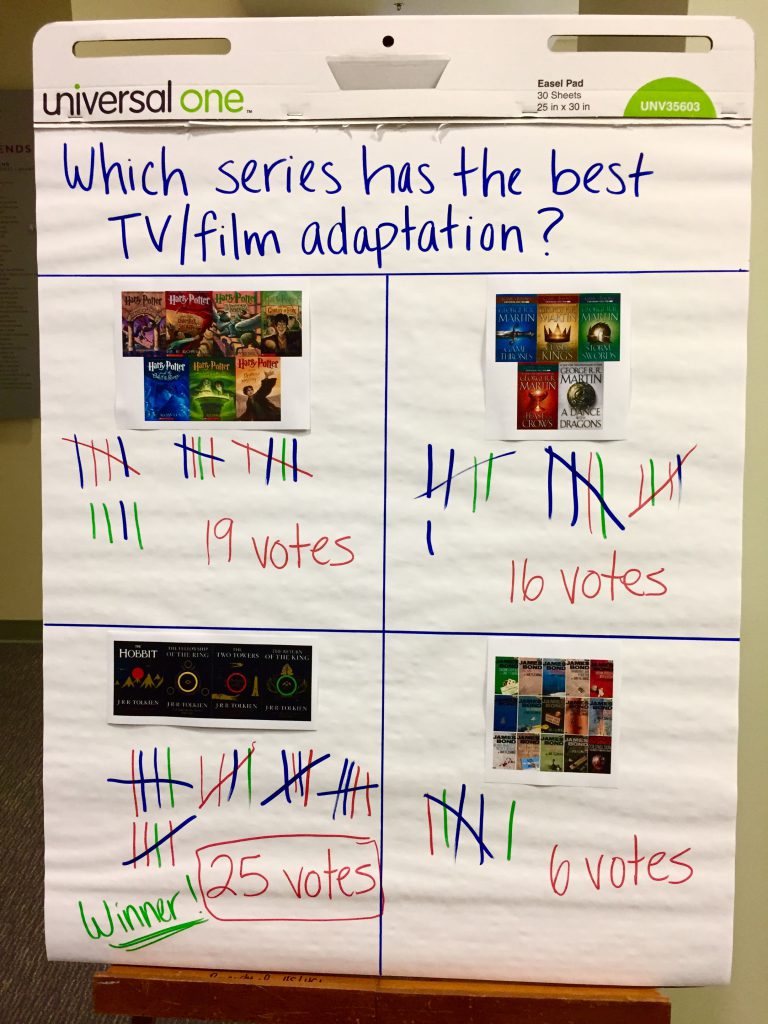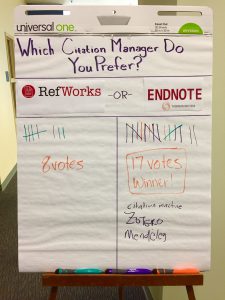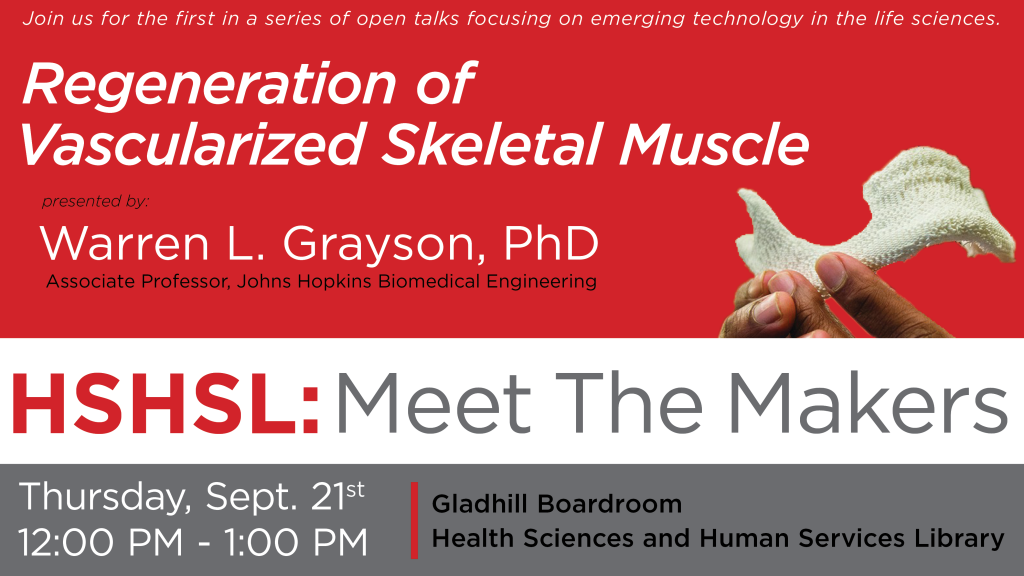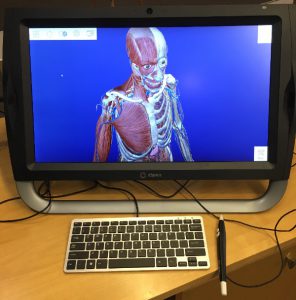
With season 7 of the popular TV show Game of Thrones drawing to a close in August, we were interested in which well-known book series had produced the best film or TV adaptation. Somewhat surprisingly given all the recent hype, Game of Thrones only came in third place out of four among our voters. The Harry Potter movies came in second place, and the Lord of the Rings films were the clear favorites. The James Bond movies were the most unloved, garnering only six votes. It seems we have many Tolkien fans out there!
Don’t miss your chance to weigh in on our current poll about the best chairs in the library – come by and vote!













